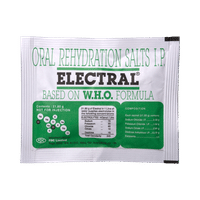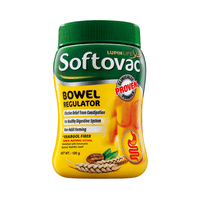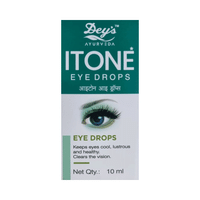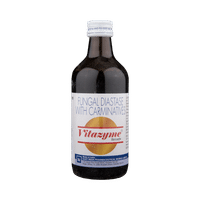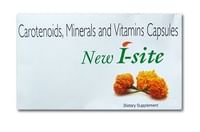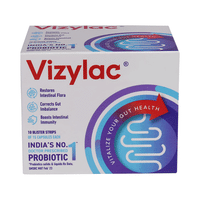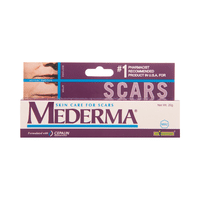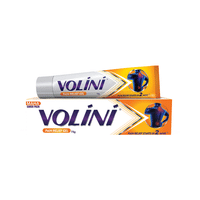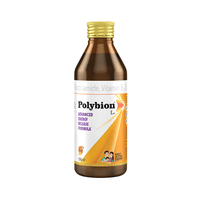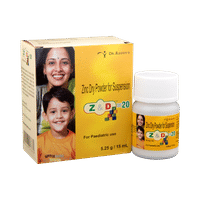Rs.24.20for 1 strip(s) (10 tablets each)
food interaction for Tinidil
alcohol interaction for Tinidil
pregnancy interaction for Tinidil
lactation interaction for Tinidil
food
alcohol
pregnancy
lactation
Tinidil 250 mg/300 mg/25 mg Tablet is to be taken with food.
None
None
CAUTION
Consuming alcohol while taking Tinidil 250 mg/300 mg/25 mg Tablet may cause symptoms such as flushing, increased heart beat, nausea, thirst, chest pain and low blood pressure (Disulfiram reaction).
UNSAFE
Tinidil 250 mg/300 mg/25 mg Tablet may be unsafe to use during pregnancy. Although there are limited studies in humans, animal studies have shown harmful effects on the developing baby. Your doctor will weigh the benefits and any potential risks before prescribing it to you. Please consult your doctor.
CONSULT YOUR DOCTOR
Information regarding the use of Tinidil 250 mg/300 mg/25 mg Tablet during breastfeeding is not available. Please consult your doctor.
CONSULT YOUR DOCTOR
SALT INFORMATION FOR Tinidil
Diloxanide(250mg)
Uses
Diloxanide is used in the treatment of worm infections and intestinal amoebiasis.
How it works
Diloxanide belongs to the class of medications called luminal amoebicide. It acts inside the bowel (lumen of the bowel) to kill the infection causing amoeba.
.Common side effects
Nausea, Abdominal pain, Vomiting, Itching, Loss of appetite, Flatulence, Decreased appetite, Red spots or bumps, Diarrhea, Skin rash
Tinidazole(300mg)
Uses
Tinidazole is used in the treatment of bacterial infections and parasitic infections. It is used in infections of the brain, reproductive system, gastrointestinal tract, skin, vagina, and other areas of the body.
How it works
Tinidazole is an antibiotic. It kills the bacteria and other microorganisms that cause infections by damaging their DNA.
Common side effects
Headache, Nausea, Dizziness, Breathlessness, Vomiting, Fatigue, Diarrhea, Constipation, Stomatitis (Inflammation of the mouth), Decreased appetite, Dyspepsia, Flatulence, Urinary tract infection, Discomfort when urinating, Vaginal odour, Vulvovaginal discomfort, Pelvic pain, Urticaria, Palpitations, Vaginal discharge, Candida overgrowth, Joint pain, Muscle pain, Joint inflammation, Bronchospasm, Coma, Depression, Furry tongue, Pharyngitis, Low blood platelets
Simethicone(25mg)
Uses
Simethicone is used in the treatment of bloating and abdominal pain.
How it works
Simethicone is an antifoaming medicine. It disintegrates gas bubbles and allows easy passage of gas.
Common side effects
Diarrhea, Upset stomach
SUBSTITUTES FOR Tinidil
7 Substitutes
7 Substitutes
Sorted By
 Rs. 123.45pay 371% more per Tablet
Rs. 123.45pay 371% more per Tablet Rs. 18.38save 26% more per Tablet
Rs. 18.38save 26% more per Tablet Rs. 34.16pay 37% more per Tablet
Rs. 34.16pay 37% more per Tablet Rs. 29.62pay 19% more per Tablet
Rs. 29.62pay 19% more per Tablet Rs. 28pay 12% more per Tablet
Rs. 28pay 12% more per Tablet
Expert advice FOR Tinidil
- You have been prescribed Diloxanide to treat a variety of parasitic worm infections.
- It should be taken with food.
- Do not crush, chew, or break the tablet. Swallow it whole with a full glass of water.
- It can be harmful to an unborn baby. Do not take it during pregnancy. Use birth control measures to prevent pregnancy while taking Diloxanide.
- Your doctor may monitor your blood counts and liver function before you start taking this medicine and regularly throughout your treatment.
- Avoid being near people who are sick or have infections. Inform your doctor if you develop signs of infection.
- Do not skip doses and finish the prescribed course, even if you start to feel better. Stopping it early may increase your risk of further infection.
Frequently asked questions FOR Tinidil
Diloxanide
Q. Is Diloxanide furoate an antibiotic?
Yes. Diloxanide furoate or Diloxanide is luminal amoebicidal agent used in the treatment of infections of the intestine caused by amoeba (a type of organism)
Q. Is Diloxanide furoate banned?
Diloxanide furoate or Diloxanide is banned by the United States Food and Drug Administration (US FDA)
Q. What is Diloxanide furoate?
Diloxanide furoate or Diloxanide belongs to the class of medications called luminal amoebicide that acts inside the intestine to kill infection causing amoeba (a type of organism)
Tinidazole
Q. Is Tinidazole effective?
Tinidazole is effective if used in the dose and duration advised by your doctor. Do not stop taking it even if you see improvement in your condition. If you stop using Tinidazole too early, the symptoms may return or worsen.
Q. Should Tinidazole be taken with food?
Yes, Tinidazole should be taken with food. Food helps to reduce the chances of developing side effects such as stomach pain, vomiting, and diarrhea, which you may experience if Tinidazole is taken on an empty stomach. If you have any doubts, consult your doctor.
Q. What if I forget to take a dose of Tinidazole?
If you forget a dose of Tinidazole, take it as soon as you remember. However, if it is almost time for your next dose, skip the missed dose and take the next scheduled dose in the prescribed time. Do not double the dose to make up for the missed one as this may increase the chances of developing side effects.
Simethicone
Q. Is Simethicone antacid?
No. Simethicone is not an antacid. But it is used in preparations which are used as antacid
Q. Does it contain aspirin?
It does not contain aspirin
Q. Is Simethicone available over the counter?
Yes. Simethicone is sold over the counter without a prescription














